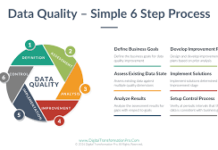2020 trade show marketing strategies revolve around the incorporation of technology and customer experience (CX). In order to have a truly engaging (i.e. successful) trade show event, you need to have an engaging booth that features the latest technology.
Focusing on customer engagement and providing an experience that utilizes technology should be your primary objective in the buildup to the trade show you’re strategizing for. If you’re wondering how to combine engaging marketing with technology, don’t worry. Below we cover everything you need to know about developing an effective trade show strategy in 2020.
Utilizing Technology for Increased ROI
When it comes to increasing your brand’s on-the-floor ROI, nothing beats using technology-driven data collection and brand engagement. Data is becoming a commodity in the business world, and this trend also applies to trade shows. Data collection isn’t just getting contact details of potential customers though. Now, data collection means recording the footprint of those potential customers for later use.
Data Collection and Management
The main goal of customer data collection is to record data for targeted remarketing. This applies to both digital marketing and trade shows. Personalization is a major trend in marketing, and being able to personalize your future marketing (and trade show) efforts could have a huge impact on your company’s ROI.
Knowing more about your customers (and potential customers) means being able to deliver more effective marketing in trade shows. Imagine being able to craft a message that appeals directly to your target audience’s emotions and inner desires. With data collection this is possible.
Focus on Engaging Experiences
Virtual reality is an emerging industry that’s taking the world by storm. If you want to truly maximize your customer’s on-the-floor experience, you would be wise to look into incorporating virtual reality experiences.
At the very least, you should be using mixed media messaging in your trade show marketing efforts. Combining video, audio, and visual content into one cohesive message can lead to drastically better engagement rates. Using a company like Exhibits NW to create a completely custom trade show experience for your customer is an excellent way to increase ROI.
While having an engaging booth is essential to your brand’s overall success, it’s also important to focus on what will happen after the customer is engaged. Will you follow up with them at the trade show? Add them to a list? Target them later during a remarketing campaign? These are all important questions that need to be asked during the development phase of your trade show marketing strategy.
Also Read: 7 Investment Tips for Beginners
Define Your Objectives
One of the biggest aspects of any trade show strategy is knowing exactly what you hope to achieve during the event. Does your brand want increased exposure? Increased sales? Data collection? If you want to develop a successful marketing strategy, you need to define very specific goals.
When setting goals, it’s important to be as detailed as possible. Having vague objectives will bring vague results. Goals should be measurable and focused on results (and specific actions). This is the only way to develop an effective marketing strategy.
Use Product Launches to Your Advantage
Most people/brands who go to trade shows are there to interact with vendors and see new product offerings. This is why you should always plan product launches around important trade shows in your industry. If you’re not doing this, then you’re losing out on potential new business. People want to see new products/services (not ones they’re already paying for).
How to Get Ready for Your Tradeshow
Marketing is also about preparation. Failure to prepare means your execution will lackluster (at best), and at worst result in a negative ROI.
Trade show strategy preparation/development shouldn’t be a year-long process though. Knowing how to delegate (and when to) is incredibly important, especially when it comes to marketing. Streamlining the development process means ensuring that cross-team communication is clear and understood by all team members.
Following Up After the Show
Many marketers make the mistake of taking a break after the trade show has ended. However, this is the exact time when a lot of work needs to be done. If you’ve had a successful trade show, you undoubtedly have a lot of customer data. How are you going to use this?
While your brand is still fresh in their minds, you need to follow up with all of the potential customers (and actual customers) that interacted with your brand during the event. How you go about doing this depends on numerous variables, but email or re-marketing through social media are common choices right now.











